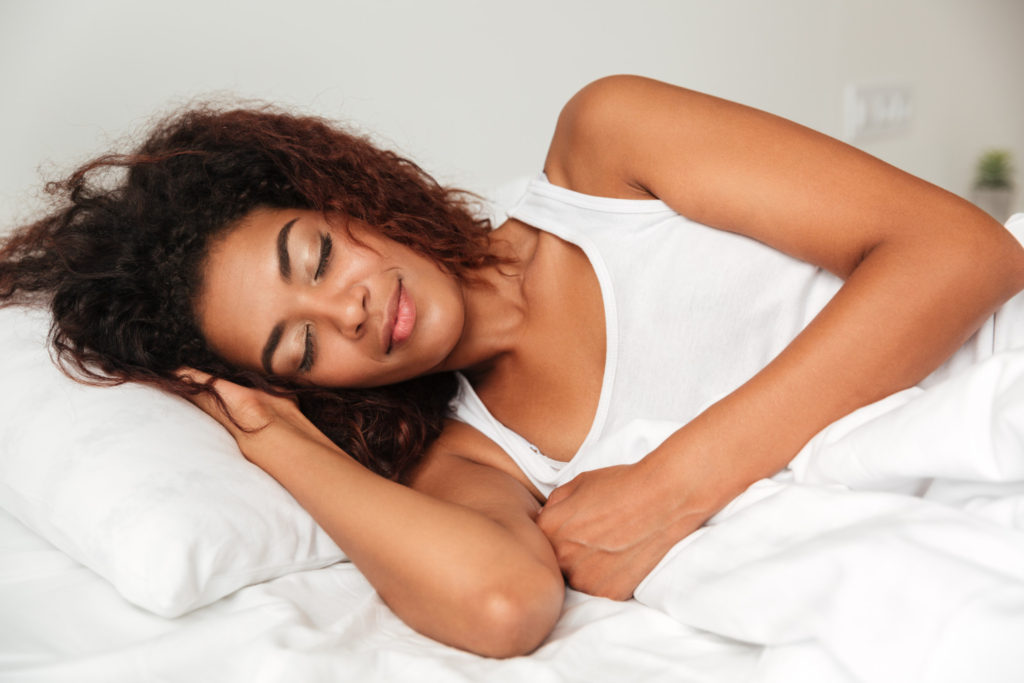
Research has demonstrated that forming good habits is a central part of health. Crafting sustainable and beneficial routines makes healthy behaviors feel almost automatic, creating an ongoing process of positive reinforcement. On the flip side, bad habits can become engrained even as they cause negative consequences.
What is sleep hygiene?
Sleep hygiene refers to healthy sleep habits. It is an assortment of practices and habits that are conducive to getting good sleep on a consistent basis. Good sleep hygiene is important because of how crucial getting good sleep is for your mental and physical health, as well as your overall quality of life.
Obtaining healthy sleep is important for both physical and mental health, improving productivity and overall quality of life. Everyone, from children to older adults, can benefit from better sleep, and sleep hygiene can play a key part in achieving that goal.
Signs of poor sleep hygiene
If you’re having trouble sleeping, three primary signs might indicate your lack of sleep is caused by poor sleep hygiene habits.
· Consistently struggling to fall asleep in a timely manner.
· Frequently waking up before you intend to wake up.
· Daytime sleepiness or fatigue.
· An overall lack of consistency in sleep quantity or quality.
If you take steps to improve your sleep hygiene and it doesn’t help you sleep better, consult your doctor to obtain a proper diagnosis.
Benefits of good sleep hygiene
Good sleep hygiene helps you get enough hours of sleep a night and helps ensure those hours are quality sleep hours. Practicing sleep hygiene can lead to healthy sleep habits, resulting in benefits both to your physical and mental health.
· It can improve your overall mood.
· It can decrease feelings of anxiety.
· It can improve your memory, focus, and problem-solving skills.
Tips for Improving Sleep Hygiene
The following tips are ways to improve your sleep hygiene and get a more restful sleep.
Keep a regular sleep schedule.
Going to sleep and waking up at the same time every day of the week (even on weekends) is essential to good sleep hygiene. Maintaining a consistent sleep schedule sets your body’s internal clock to anticipate winding down and waking up at specific times, making it easier to fall asleep and stay asleep until morning. While you’ll have obligations that get in the way of your normal sleep time, make sure to return to your schedule the following day. For instance, if you stay out late at a party, rather than sleeping in later than usual, try to wake up at your regular time the following day to better maintain your sleep-wake cycle.
Eliminate environmental noise.
If you live in a noisy location or sleep during noisier daytime hours because you work a night shift, try sleeping with earplugs to prevent outside noise from disturbing you. White noise machines can also help drown out environmental sounds.
Establish a relaxing bedtime routine.
Partaking in a relaxing activity within the hour before you plan to fall asleep will ease your transition into sleep. Some examples of relaxing pre-bedtime activities include reading a book, taking a warm bath, listening to soothing music, and meditating.
Avoid napping during the day.
Napping during the day can make it harder to fall asleep later and may make it harder to fall asleep at night or make you more prone to waking up during the night.
If you do need to nap:
· Keep it to 30 minutes or less.
· Avoid napping later in the afternoon.
Napping may affect the sleep pattern of older adults more than younger people, but the extent of this is still unclear.
Avoid midday caffeine and late-night alcohol.
A late-afternoon coffee boost may help get you through the end of your workday, but any caffeine consumed within six hours of your bedtime has the potential to keep you lying wide awake in bed. While alcohol will certainly make you feel sleepy at first, just one alcoholic beverage close to your bedtime can obstruct your sleep cycle, preventing you from getting enough REM (rapid eye movement) sleep and deep sleep.
Make your sleep environment work for you.
A cool, dark, quiet room may help you fall asleep and stay asleep more easily. Bright lights at night interfere with your sleep-wake pattern, tricking your brain into thinking its still daytime and making it more difficult to fall asleep. Make sure you have a comfortable mattress, pillows, and bed linens. The more comfortable you are, the easier it may be to fall asleep and stay asleep.
Make your bed a worry-free zone.
One method to help you sleep better is to eliminate all activities from your bed with the exception of sleep and sex. When you’re in bed, avoid catching up on work, scrolling through social media on your phone, and having conversations with your partner about major life decisions. This helps ensure that you don’t associate your bed with wakefulness. Once you get under the covers, it should send your brain a signal that it’s time for sleep or sex and nothing else.
Turn off electronic devices before you go to sleep.
The blue light that radiates from electronic screens prevents your body from releasing the sleep hormone melatonin. Melatonin is a chemical that controls your sleep/wake cycle. When your melatonin levels dip, it can be more difficult to fall asleep. In addition, electronic devices tend to keep your mind racing and make it more difficult to wind down into sleep mode.
Avoid exercising close to bedtime.
While establishing a regular exercise routine can improve your quality of sleep over time, you should plan to work out at least three hours before you want to fall asleep. Exercise increases adrenaline and stimulates brain activity, neither of which promotes drowsiness.

Recent Comments